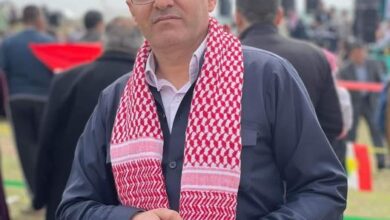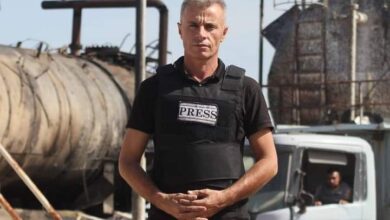
Council in Syria takes a stand on Staffan de Mistura’s Non-Paper
Within the context of the Geneva negotiations on Syria’s future, UN Special Envoy Staffan de Mistura recently shared a non-paper, summerising principles for the negotiation processes. On behalf of the Kurdish National Council in Syria, the chairman of its Foreign Committee, Kamiran Hajo, responded as follows:
Dear Mr de Mistura,
Today, we take the liberty to take a stand on the non-paper you recently published, a paper in which you summerise those principles you think the representatives of the Syrian opposition and the Syrian government have agreed on during the peace negotiations in Geneva. We would like to express our satisfaction that the principle of democracy, the principle of rule of law, the representation of women and the fundamental commitment to Syria’s diversity having been incorporated into the non-paper – even though not to the extend the Kurdish National Council would have wished for.
At the same time, it is strinking that the equivocal wording of the principles renders their content ambiguous. Moreover, numerous principles that are crucial for ensuring Syria’s transformation to democracy have been left out, while seemingly arbitrary aspects without any relevance for Syria’s transition have been included.
1. The non-paper’s reader must assume Syria to be solely arabic. The first principle, as it speaks of Syria as „one people“, can’t be understood differently. After this introduction, the commitment to „cultural diversity“ and „diverse cultures“, expressed later on in the non-paper, seems comparably weak and not very convincing – especially, since the term „ethnical diversity“ has been explicitly avoided.
2. Item 5 addresses the important issue of how to divide state power. Unfortunately, we only find a bare list of catchwords here, whereas it stays entirely open, what “local self-administration” is intended to mean, for instance. This wording leaves everything possible, from administrative decentralisation in line with the Syrian government under Bashar al-Assad’s lead up to federal arrangements.
3. Item 9 deals with the granting of human rights and demands equal rights regardless of race, religion, cultural or linguistic identity as well as gender. What is missing, is the explicit commitment to minority rights. Even though we consider the Syrian Kurds as a nation and not as a minority, it is obvious, that a clear commitment to the minority rights chartered by the UN is indespensable for the prevention of ethnic discrimination, not only of the Kurds.
4. Neither the issue of the Golan Heights, nor environment protection are of any relevance to the success of the transition process at this point of time. Finding a solution for the “Kurdish question”, however, is definitely of high significance. This issue, though, is in no way considered in the non-paper; the interests of up to 15 per cent of the Syrian people are being categorically ignored. In this way, no long-term solution for peace respecting the territorial integrity of the country to which we strongly feel committed can be found.
5. In this context, it is also remarkable, that, at no point in the non-paper, the key cause for the current crisis is mentioned: the exclusion of large proportions of the Syrian people from political, social and cultural rights. As long as this is not at least to some extend commonly recognized by all negotiating partners, the peace negotiations will not have the chance to succeed.
Due to the outlined reasons, the Kurdish National Council in Syria cannot identify with the non-paper. Furthermore, we want to point out that we expect an explicit commitment to the Kurdish issue’s relevance for a peace settlement by both the Syrian opposition – our associates – and the UN.
Yours respectfully,
Kamiran Hajo
(Chairman of the Committee for External Affairs of the Kurdish National Council in Syria)
Hewlêr, March 22, 2017




